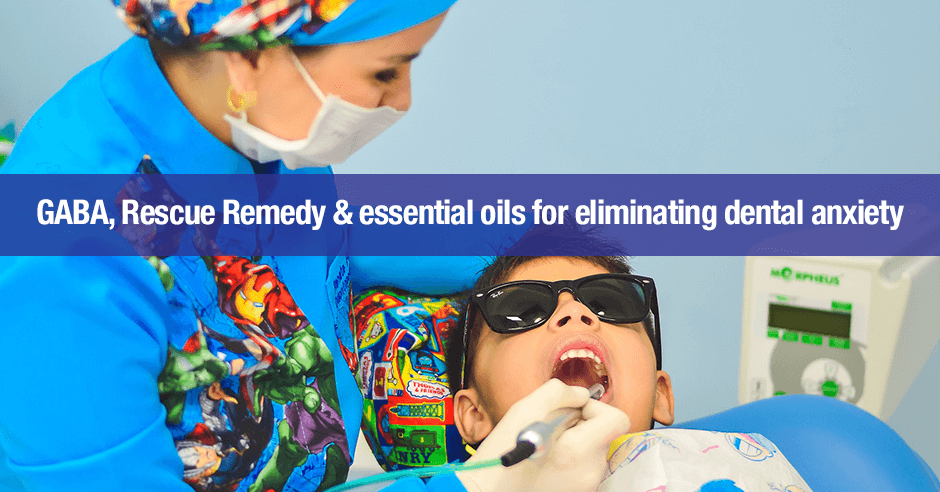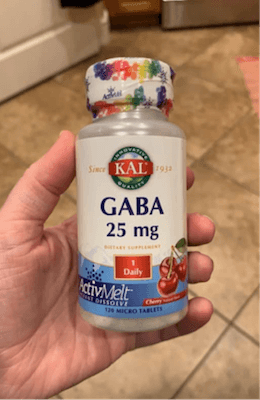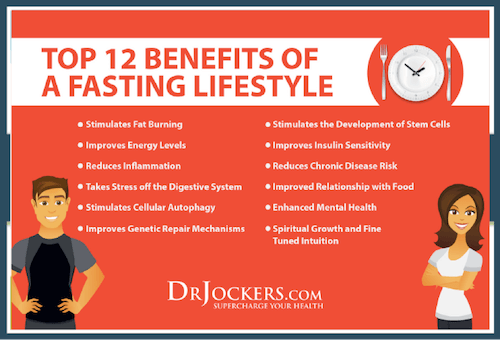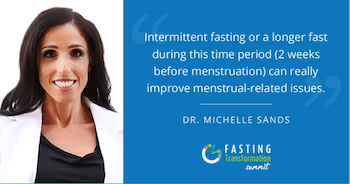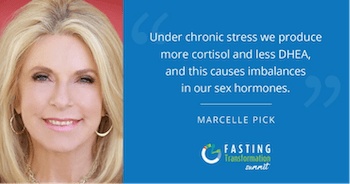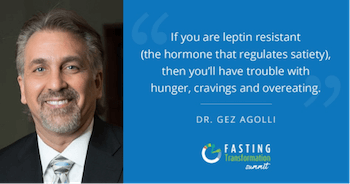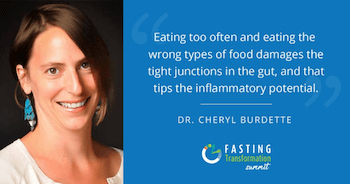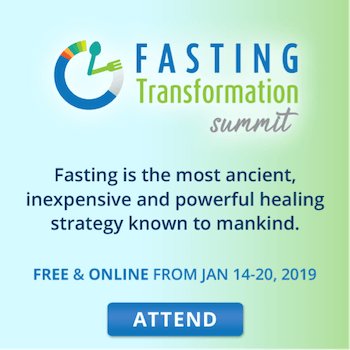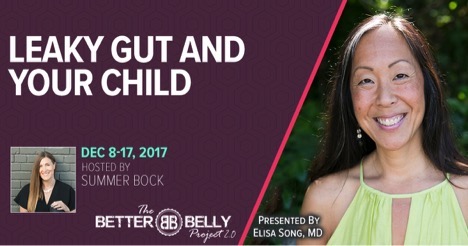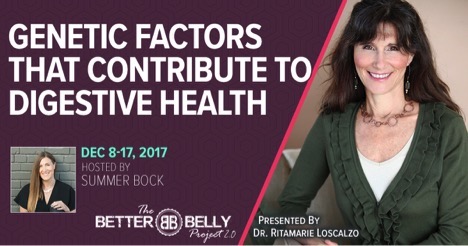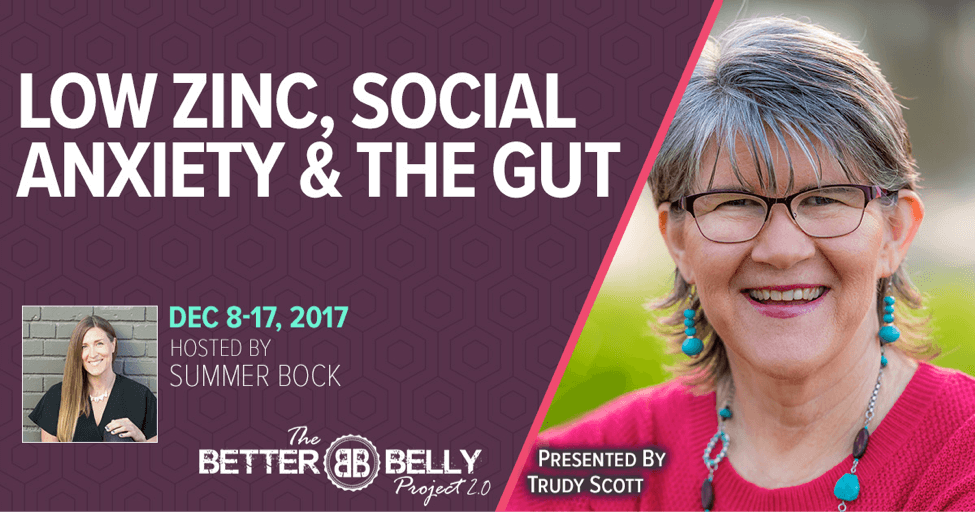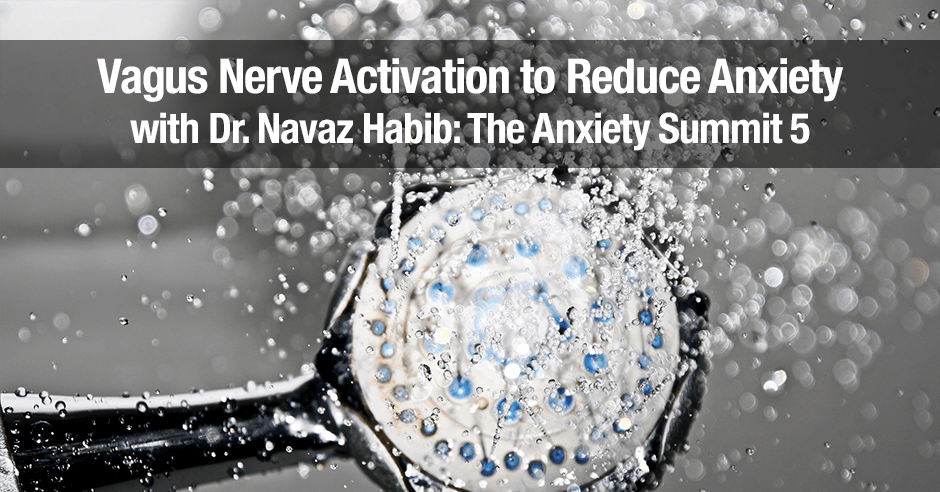
Navaz Habib, DC, is one my guest experts on The Anxiety Summit 5: Gut-Brain Axis and our topic is: Vagus Nerve Activation to Reduce Anxiety. What You’ll Learn –
- Using bowel transit time and heart rate variability to measure how your vagus nerve is working
- How the vagus nerve becomes dysfunctional
- Vagus nerve activation tools: gargling, auricular acupuncture, social interaction
- and more
Dr. Navaz shares this about the vagus nerve and why good vagus nerve function is so important for both good digestion and for easing anxiety (and preventing it too):
the vagus nerve is one of many cranial nerves. So we have 12 pairs of cranial nerves, or nerves that begin within the head cavity, and they exit to the brainstem at that point.
The vagus nerve is the 10th pair of cranial nerves. So it’s called the 10th cranial nerve, as well. And there’s one on each side. There’s actually one on the left and one on the right. So it is a pair and is the vagus nerves in reality. But the vagus nerve is the only cranial nerve of those 12 pairs that will exit the cranium. Okay. So it does have some function in and around the face and the throat, but it does exit and go into other areas of the body.
And that’s what makes the vagus nerve so important. It is the only one that does so. And it goes to innervate so many different organs inside our body. This includes the heart, the lungs, stomach, gallbladder, liver, kidneys, every single part of our digestive tract, as well as our spleen. So all of these organs need to have a certain level of information that’s passed from the brain to those organs, but we also need all of those organs, especially the gut, to send that information back up to the brain. And the vagus nerve is very, very important in that specific function.
He shares the two tests he uses to ensure his clients have strong vagus nerve function:
- the bowel transit time test: “how much time is it is actually going to take for the food that we ingest from our mouth to exit through the opposite end, to go through the entire digestive tract and leave”
- heart rate variability test which measures vagus nerve function directly: “heart rate variability is actually the measurement of the amount of time in milliseconds between beats of the heart.”
We go into great detail on each of the above tools and how to use them and we also discuss some of the research. This paper is fascinating: Vagus Nerve as Modulator of the Brain-Gut Axis in Psychiatric and Inflammatory Disorders. Here are some highlights from our discussion:
- how inflammatory disorders and psychiatric disorders are so interconnected through the vagus nerve function
- gut-brain axis sends information/chemicals from gut bacteria, parasites, viruses, yeast etc. up through the vagus nerve to the brain.
- it involves the inflammatory system or the cholinergic anti-inflammatory system and acetylcholine
- if we have gut dysfunction that can lead to dysfunctional inflammatory control, immune dysfunction and autoimmune diseases
- it’s going to lead to inflammation in the brain, and in the entire nervous system and that’s where a lot of mood disorders like anxiety and depression really start to come from because we now know that serotonin, dopamine, norepinephrine, and epinephrine levels are highest in the gut.
- this can lead to depressive type symptoms, mood type symptoms, and significant fear and worry that we find in anxiety.
When I found out that Dr. Navaz had written a book called “Activate Your Vagus Nerve: Unleash Your Body’s Natural Ability to Heal” (my Amazon link), I reached out to him to speak on the summit, and I’m so glad I did. I know you’ll love this interview as much as I do and will get tons out of it!
We cover how vagus nerve function can be impacted – lack of sleep and hormonal imbalances can be factors. A big trigger is trauma and I share my traumatic plane ride and how it affected my vagus nerve, voice and throat. I blogged about this and if you missed all that be sure to check the blog and videos in advance of our interview: Vagus nerve rehab with GABA, breathing, humming, gargling and key nutrients. The amino acid GABA was central in relaxing the throat spasms I experienced.
And we end with very practical ways to activate your vagus nerve
- Deep breathing exercises and cold showers (“cold showers are a really great way to make our breathing a little bit more difficult. It’s like adding a weight onto the breath/onto the chest so that we’re forcing ourselves to breathe as well as we possibly can even under stressful circumstances”)
- Gargling and using the gag reflex
- Humming, chanting and singing (I used these approaches for my vagus nerve issue)
- Auricular acupuncture (which is also very effective for addictions)
- And finally, social interaction (I love this one and we talk about pyroluria and why addressing this social anxiety condition with nutrients is also so important for vagus nerve
Be sure to listen to Dr Navaz’s wonderful interview to get a complete picture of the importance of the vagus nerve, how it can start to function poorly and how to reactivate it to improve gut health and help with anxiety and mood issues.
It will lay a great foundation for the mentions of vagus nerve in many of the other interviews.
Please join us and listen to my interviews and all the others on The Anxiety Summit 5: Gut-Brain Axis.
If you’re already familiar with the importance of the vagus nerve and already do work on activation (to improve gut health and help with anxiety) please share what you find works for you. That way we can all learn.
If you’d like to ask a question, please post in the comments below.
I’d also love to hear from you once you’ve listened in to Dr. Navaz’s interview and the others.



